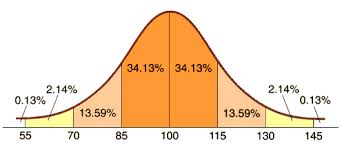Creativity is an expression of intelligence. And can intelligence be taught?
Human beings are naturally intelligent in many ways and creativity expresses itself in many ways. Through gesture and through speech. These are the raw materials via which formal artistry is attained.
What can be taught are the skills through which expression is enacted. One cannot be a writer until one has been taught about writing. In todays world of mass literacy that fact is forgotten. Given the immense production of books one needs to know what is worth reading, and why. Hence the development of a canon.
Physics is creative - they create physics. Mathematician are creative - they create mathematics. Being far removed from the world-at-hand it is formal institutions of learning that transmit this body of knowledge and nurtures the conditions in which it flourishes.
Famously Picasso dropped out of the art school in Madrid. But then he knew as well how to paint as his father was a polished painter of pigeons. He went to Paris - then the cultural centre of Europe. He went where the 'scene' was. Artistry requires a body of like-minded souls. It amplifies and makes real the substance of art. This is as true of scholarly work as it is of what is known as the arts today. If one looks at the root meaning of college:
college - late 14c., from Old French college "collegiate body" (14c.), from Latin collegium "community, society, guild," literally "association of collegae" (see colleague).
Braque, the leader of the surrealists, when he arrived in New York said that here there were artists, but no art. Meaning no collegial body of artists linked together by affinity and spirit; or perhaps it was a recognition of American Individualism that divides; or the mimicry of art rather than the art itself.
One can discrern two forms of creativity. The arrangement of what is already at hand put into a new form. And that which breaks new ground. Generally form and sensibility come together fluidly and coherently. One is inhabiting the art and made it ones home. I mean by art - artistry in its most general form - as artisan and craftsman - covering both the sciences and the arts.
Artistry is not only thought but know-how. It is embodied thought. Thought made flesh and concrete. Ones hands work at their own accord so that composition can proceed.
Socrates, so Plato tells us, examined the poet to find out if he understood the nature of poetry; and found that he did not. But a poet does not reflect on the nature of his art, or if he does, only in a cursory and casual way. Thus, this is the mode in which the rhapsode Ion answers Socrates in his eponymous dialogue. Socrates, also in this dialogue call poetry a gift of the gods, of the heavenly muse. Plato, through the figure of Socrates interrogating the poet was interrogating the nature of creativity. Look at the root meaning of poetry:
poet (n.) early 14c., "a poet, a singer" (c.1200 as a surname), from Old French poete (12c., Modern French poète) and directly from Latin poeta "a poet," from Greek poetes "maker, author, poet," variant of poietes, from poein, poiein "to make, create, compose," from PIE *kwoiwo- "making," from root *kwei- "to pile up, build, make" (cf. Sanskrit cinoti "heaping up, piling up," Old Church Slavonic činu "act, deed, order").
Creativity, to Plato displays a divine link. It has an affinity with the gods. One might suppose that Socrates or Plato was admitting that at bottom there is no such link. For who can now, believe in gods. Or the divine. The words are quaint or antiquarian. The word sacred is demode (out of fashion). But Plato, is not the securalised and desacrilised philosopher of today. The Philosophers then moved in a world of thought that inhabited worlds of myth, religion and thought that today are divided strictly. The word philosopher today does not convey what the word philosophy then did. If one cannot take what Plato say seriously, then one should at least take seriously that the words that he made Socrates say were meant seriously.
So, No - creativity cannot be taught because its an expression of the person - soul, personality and intelligence. But it can be enhanced though the conditions that enable it to flourish: the habitus of an art.
